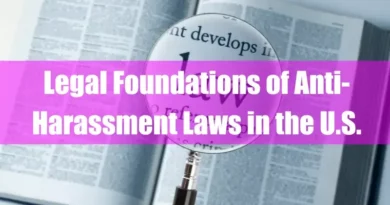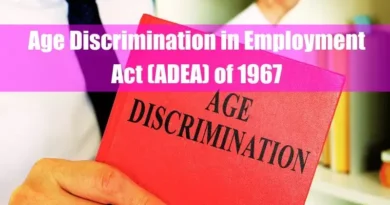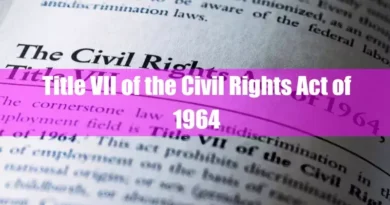18 U.S.C. Chapter 109A: Sexual Abuse
Takeaways
| Key Points |
|---|
| 18 U.S.C. Chapter 109A defines key terms such as “sexual act,” which includes various forms of sexual penetration and contact intended to abuse, humiliate, or gratify sexual desire, and “sexual contact,” referring to intentional touching of private areas with similar intent. |
| “Official detention” encompasses custody, confinement, or supervision by law enforcement, military, or federal agencies responsible for detainees, including those awaiting trial or sentencing. |
| The chapter details offenses like aggravated sexual abuse (Section 2241), which involves force, threats, weapons, or victims under 12, punishable by life imprisonment, while sexual abuse (Section 2242) covers coercion or incapacity-based acts, carrying up to 20 years in prison. |
| Sexual abuse of minors or wards (Section 2243) criminalizes acts with minors aged 12-15 or detainees under federal custody, with penalties of up to 15 years, whereas abusive sexual contact (Section 2244) includes non-penetrative offenses punishable by up to 10 years. |
| The most severe, Section 2245, addresses sexual abuse resulting in death, allowing life imprisonment or the death penalty, while penalties across the chapter range from 10 years to life, reflecting the law’s strict stance on protecting vulnerable individuals. |
Introduction to 18 U.S.C. Chapter 109A
Overview of the Chapter and Its Purpose
18 U.S.C. Chapter 109A, titled “Sexual Abuse,” is a crucial section of the United States federal code that addresses various forms of sexual abuse offenses. Enacted as part of the Comprehensive Crime Control Act of 1984, Chapter 109A provides a detailed legal framework for prosecuting sexual offenses within federal jurisdiction.
The chapter aims to protect individuals from acts of sexual violence and exploitation, focusing on offenses committed under specific conditions that involve federal interests or on federal property.
The primary purpose of 18 U.S.C. Chapter 109A is to outline and define criminal offenses related to sexual abuse, establish penalties for these offenses, and offer protection to victims.
This law serves as a foundation for federal prosecution of sexual crimes and underscores the government’s commitment to addressing and preventing sexual violence.

Jurisdictional Applicability
Chapter 109A applies to offenses committed in various federal jurisdictions. This includes crimes on federal property, such as military bases, national parks, and federal buildings. Additionally, the chapter applies to crimes committed in areas under federal control, such as U.S. territories and possessions, and in situations involving federal employees or contractors.
The chapter also covers offenses on certain transportation systems like aircraft, vessels, and trains that fall under U.S. jurisdiction.
The jurisdictional reach of Chapter 109A extends to crimes that involve crossing state lines or using interstate commerce facilities, such as the internet or telephones, to commit or facilitate sexual offenses.
This broad applicability ensures that the federal government can prosecute sexual abuse crimes effectively when state laws may not have jurisdiction or where federal interests are directly involved.
Key Definitions

To understand 18 U.S.C. Chapter 109A fully, it is essential to grasp the key terms and definitions used within the chapter:
- Sexual Act: Under 18 U.S.C. Chapter 109A, a “sexual act” is defined as contact between the penis and the vulva or anus, contact between the mouth and the penis, vulva, or anus, or the penetration, however slight, of another person’s anal or genital opening with any object or body part, provided the act is committed with the intent to abuse, humiliate, harass, degrade, or arouse or gratify sexual desire.
- Sexual Contact: This term refers to the intentional touching, either directly or through clothing, of the genitalia, anus, groin, breast, inner thigh, or buttocks of any person with the intent to abuse, humiliate, harass, degrade, or arouse or gratify sexual desire.
- Official Detention: “Official detention” includes custody, confinement, or supervision by a law enforcement officer, military personnel, or a facility or agency responsible for detaining individuals, including detention pending court proceedings, awaiting trial or sentencing, or while in custody following a conviction.
These definitions provide the legal basis for distinguishing between sexual offenses and are crucial for prosecuting cases under Chapter 109A.
Sections of 18 U.S.C. Chapter 109A

Section 2241: Aggravated Sexual Abuse
Section 2241 addresses aggravated sexual abuse, which is considered a severe form of sexual offense under federal law. It outlines specific scenarios in which sexual acts are deemed to be aggravated sexual abuse:
- Aggravated Sexual Abuse by Force or Threat: This provision applies when an offender causes another person to engage in a sexual act through the use of force, threats of death, serious bodily injury, kidnapping, or the use of a dangerous weapon. The law criminalizes actual use and attempts to use such force or threats.
- Aggravated Sexual Abuse with Children: Section 2241 also criminalizes sexual acts committed with children under 12 years of age or using force or threats to coerce sexual acts with children aged 12 to 15. It emphasizes the gravity of offenses involving minors and provides stringent penalties for perpetrators.
Aggravated sexual abuse under Section 2241 is punishable by life imprisonment or any term of years, depending on the circumstances and severity of the offense.
Section 2242: Sexual Abuse
Section 2242 deals with sexual abuse offenses that do not rise to the level of aggravated sexual abuse but still involve significant coercion or exploitation:
- Sexual Acts Involving Incapacity or Fear: This section applies when an offender knowingly causes another person to engage in a sexual act by threatening or placing that person in fear or by exploiting a situation where the victim is incapable of appraising the nature of the conduct or physically incapable of declining participation or communicating unwillingness to engage in the act.
The penalties for sexual abuse under Section 2242 include imprisonment for up to 20 years, highlighting the seriousness with which the law treats such offenses.
Section 2243: Sexual Abuse of a Minor or Ward
Section 2243 addresses sexual abuse involving minors and individuals under specific forms of custody:
- Sexual Acts Involving Minors Aged 12-15: This provision makes it illegal for a person to knowingly engage in a sexual act with a minor aged 12 to 15 years who is at least four years younger than the perpetrator. This applies regardless of consent, reflecting the federal stance on protecting young individuals from sexual exploitation.
- Sexual Abuse Involving Wards or Individuals in Federal Custody: The section also criminalizes sexual acts committed by persons in positions of authority, such as federal employees or contractors, with individuals who are in official detention or otherwise under federal custody.
Violations of Section 2243 can result in imprisonment for up to 15 years, emphasizing the protective measures for minors and individuals under federal authority.
Section 2244: Abusive Sexual Contact
Section 2244 outlines offenses related to abusive sexual contact:
- Overview of Abusive Sexual Contact and Its Penalties: This section covers instances where an offender engages in or attempts to engage in sexual contact with another person without their consent. Abusive sexual contact may include fondling or groping and does not necessarily involve penetration.
Penalties under Section 2244 vary depending on the circumstances and severity of the offense but can include imprisonment for up to 10 years.
Section 2245: Sexual Abuse Resulting in Death
Section 2245 is one of the most severe provisions under Chapter 109A:
- Penalties and Conditions Under Which This Applies: This section addresses cases where a sexual abuse offense results in the victim’s death. It provides for life imprisonment or the death penalty, depending on the circumstances surrounding the offense and the outcome of the judicial process.
Penalties and Sentencing

Explanation of Fines and Imprisonment Terms
The penalties for violations under 18 U.S.C. Chapter 109A are stringent, reflecting the severity of sexual abuse crimes. The chapter outlines various imprisonment terms, from up to 10 years for abusive sexual contact to life imprisonment or the death penalty for sexual abuse resulting in death. Fines can also be imposed as part of the sentencing, although the primary focus is incarceration as a deterrent and offender punishment.
Differences in Penalties Based on Specific Offenses
Penalties under Chapter 109A vary significantly based on the nature of the offense, the circumstances under which it was committed, and the impact on the victim. For example, aggravated sexual abuse involving force or threats carries harsher penalties compared to offenses involving incapacity or fear. Similarly, offenses involving minors or resulting in death are treated with the utmost severity, reflecting the law’s protective stance on vulnerable populations.
Legal Defenses and Exceptions

Defenses Available Under Chapter 109A
While Chapter 109A sets out strict penalties for sexual abuse, there are specific defenses that defendants may raise. These defenses can include claims of lack of intent, mistaken identity, or consensual conduct in certain cases where consent might be considered a viable argument under state law, though it may not apply under federal law.
However, the burden of proof for these defenses rests with the defendant, who must present credible evidence to support their claims.
Situations Where Knowledge or Intent is Not Required (e.g., Strict Liability)
Certain offenses under Chapter 109A operate under strict liability, meaning that the prosecution does not need to prove that the defendant knew the victim’s age or that the conduct was non-consensual. This applies particularly in cases involving minors or where the law explicitly states consent is not a defense.
This strict liability approach underscores the chapter’s focus on protecting vulnerable individuals and upholding the integrity of federal jurisdiction in prosecuting sexual abuse crimes.
Recent Amendments and Legal Changes to 18 U.S.C. Chapter 109A

Significant Amendments to the Chapter Over the Years
18 U.S.C. Chapter 109A has undergone several important amendments to address evolving legal standards and societal understandings regarding sexual abuse. Here are some significant amendments made over the years:
- 1994 Amendment: The Violent Crime Control and Law Enforcement Act 1994 notably changed Chapter 109A. This law added new sections, including mandatory restitution for victims (Section 2248), provisions for repeat offenders (Section 2247), and detailed definitions of sexual abuse and related offenses (Sections 2241–2245). These additions enhanced the scope of the chapter by specifying penalties and ensuring victims received financial compensation for their suffering.
- 2006 Amendment: The Adam Walsh Child Protection and Safety Act of 2006 further refined the chapter by expanding the definitions and penalties for sexual offenses against children. This law reinforced federal authority to prosecute serious offenses involving minors, especially those that crossed state lines or occurred on federal property.
- 2022 Amendment: The Violence Against Women Act Reauthorization Act of 2022 updated the language of Section 2243 to cover “Sexual abuse of a minor, a ward, or an individual in federal custody,” thereby broadening the scope to include more protected categories under federal law. This amendment was part of a broader legislative effort to modernize and clarify federal sexual abuse statutes and ensure comprehensive protections for vulnerable populations.
Impact of These Amendments on Prosecutions and Defenses
The amendments to Chapter 109A have significantly impacted how sexual abuse cases are prosecuted and defended in federal courts:
- Enhanced Penalties: Including mandatory restitution and specific provisions for repeat offenders has led to harsher penalties for convicted offenders. This change reflects a commitment to deterring sexual crimes and ensuring justice for victims.
- Broadened Definitions: By expanding the definitions of who can be considered a victim (including minors, wards, and those in federal custody), the law now covers a wider array of offenses. This has allowed prosecutors to pursue cases more aggressively and has closed loopholes that previously allowed some offenders to evade justice.
- Adapted Defense Strategies: Defense attorneys have had to adjust their strategies in light of these changes. The broader definitions and stricter penalties mean that defenses must now consider the expanded scope of federal jurisdiction and the higher stakes involved in these cases. For example, arguments about the victim’s capacity or the defendant’s intent are scrutinized more rigorously under the updated statutes.
These amendments reflect an evolving legal landscape that aims to provide comprehensive protection for victims of sexual abuse and hold perpetrators accountable under federal law.
Relation to Other Federal and State Laws

Interaction with Other Federal Sexual Abuse Laws
Chapter 109A interacts with other federal laws addressing sexual abuse, such as the Adam Walsh Child Protection and Safety Act, which aims to protect children from sexual exploitation and violent crime. The chapter also complements the Violence Against Women Act (VAWA), which provides resources and support for victims of sexual violence and strengthens penalties for offenders.
Overlap with State Sexual Abuse Statutes
While Chapter 109A is a federal law, it often overlaps with state sexual abuse statutes. Federal and state authorities may collaborate in prosecuting cases that involve both state and federal jurisdictions, ensuring that offenders are held accountable under the most applicable legal framework.
Enforcement and Prosecution
Role of Federal Agencies in Enforcing These Laws
Federal agencies, such as the Federal Bureau of Investigation (F.B.I.) and the Department of Justice (D.O.J.), play a critical role in enforcing 18 U.S.C. Chapter 109A. These agencies investigate allegations of sexual abuse, gather evidence, and work closely with federal prosecutors to bring offenders to justice.
Common Prosecutorial Practices and Challenges
Prosecuting sexual abuse cases under Chapter 109A involves various challenges, including gathering sufficient evidence, securing victim cooperation, and navigating complex legal standards.
Despite these challenges, federal prosecutors are committed to upholding the law and ensuring that justice is served for victims of sexual abuse.
Conclusion
18 U.S.C. Chapter 109A is a vital component of the United States legal framework for addressing sexual abuse. Through its comprehensive provisions and strict penalties, the chapter aims to protect individuals from sexual violence, especially in federal jurisdictions.
As the legal landscape continues to evolve, Chapter 109A remains a cornerstone in the fight against sexual abuse, reflecting the nation’s commitment to safeguarding the rights and dignity of all individuals.
FAQ
What constitutes “aggravated sexual abuse” under federal law?
Aggravated sexual abuse involves causing another person to engage in a sexual act through force, threats of death, serious bodily injury, kidnapping, or by rendering the victim unconscious or drugging them without consent. This offense is outlined in 18 U.S.C. § 2241.
How does federal law define “sexual abuse”?
Under 18 U.S.C. § 2242, sexual abuse is defined as causing another person to engage in a sexual act by placing them in fear or by engaging in a sexual act with someone incapable of declining participation or communicating unwillingness.
What is the legal definition of “sexual contact” in federal statutes?
Sexual contact refers to the intentional touching, either directly or through clothing, of the genitalia, anus, groin, breast, inner thigh, or buttocks with the intent to abuse, humiliate, harass, degrade, or arouse or gratify sexual desire.
Are there enhanced penalties for repeat sexual offenders under federal law?
Yes, 18 U.S.C. § 2247 increases penalties for individuals with prior convictions under Chapter 109A or comparable state laws, potentially doubling the authorized imprisonment term.
Does federal law mandate restitution for victims of sexual abuse?
Yes, under 18 U.S.C. § 2248, courts are required to order restitution for victims of offenses under Chapter 109A, covering the full amount of the victim’s losses, including medical services, therapy, and other related costs.
What are the penalties for sexual abuse resulting in death?
According to 18 U.S.C. § 2245, if a sexual abuse offense results in the victim’s death, the perpetrator can face life imprisonment or the death penalty, depending on the circumstances.
How does federal law address sexual abuse of minors or wards?
18 U.S.C. § 2243 criminalizes engaging in sexual acts with minors aged 12 to 15 who are at least four years younger than the offender, as well as sexual acts with individuals in federal custody or wards.
What constitutes “abusive sexual contact” under federal statutes?
Abusive sexual contact, as defined in 18 U.S.C. § 2244, involves intentional sexual touching without consent, including instances where the victim is incapable of consenting.
Are there specific provisions for offenses committed in federal prisons?
Yes, 18 U.S.C. § 2241(c) addresses sexual abuse offenses committed within federal prisons, emphasizing the protection of inmates from sexual exploitation by staff or other inmates.
How does federal law define “official detention” in the context of sexual abuse?
“Official detention” includes custody, confinement, or supervision by law enforcement, military personnel, or any facility responsible for detaining individuals, encompassing those awaiting trial, sentencing, or post-conviction custody.
What is the statute of limitations for prosecuting sexual abuse offenses under federal law?
The statute of limitations varies depending on the specific offense and circumstances. There may be no statute of limitations for certain offenses, especially in cases involving minors or where the offense results in death. It’s essential to consult the specific provisions of 18 U.S.C. Chapter 109A for detailed information.
Does federal law address sexual abuse involving incapacitated individuals?
Yes, under 18 U.S.C. § 2242, it’s illegal to engage in sexual acts with individuals incapable of appraising the nature of the conduct or physically unable to decline participation or communicate unwillingness.
Are there federal protections against sexual abuse for individuals in official detention?
Yes, 18 U.S.C. § 2243(b) criminalizes sexual acts between individuals in official detention and those with authority over them, such as federal employees or contractors, regardless of consent.
How does federal law handle cases of sexual abuse involving threats?
Under 18 U.S.C. § 2241(a), causing another person to engage in a sexual act through threats of death, serious bodily injury, or kidnapping constitutes aggravated sexual abuse, carrying severe penalties.
What are the reporting requirements for sexual abuse offenses under federal jurisdiction?
While federal law mandates reporting certain offenses, the specific requirements can vary. Generally, federal employees and contractors are required to report instances of sexual abuse within federal facilities. It’s advisable to consult agency-specific guidelines and 18 U.S.C. Chapter 109A for detailed reporting obligations.









